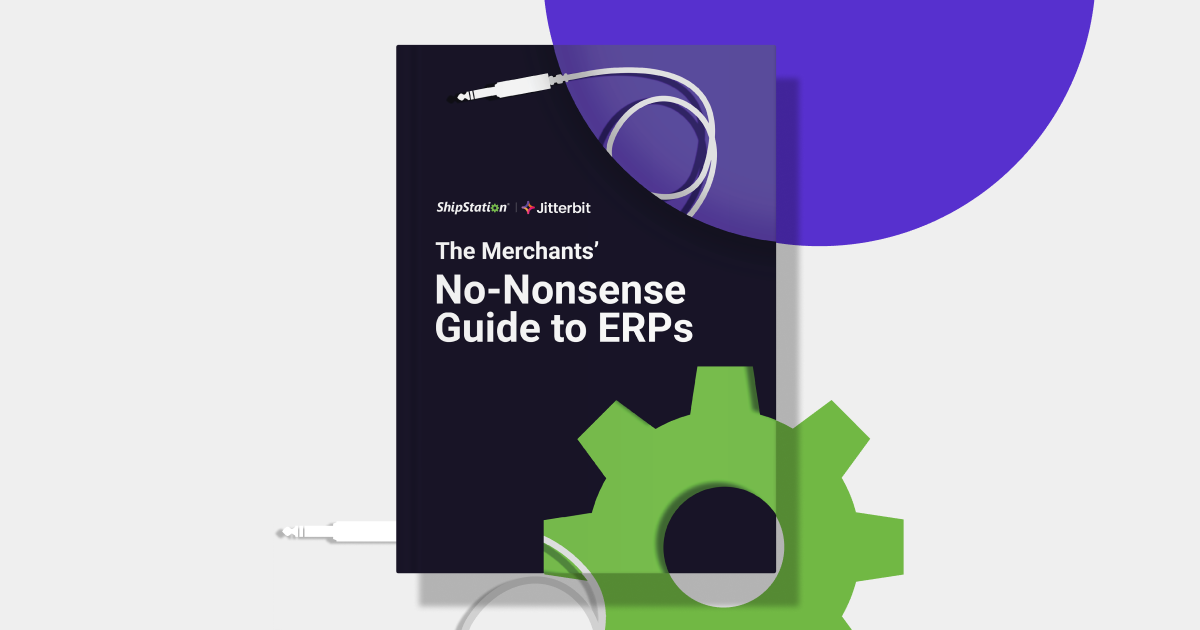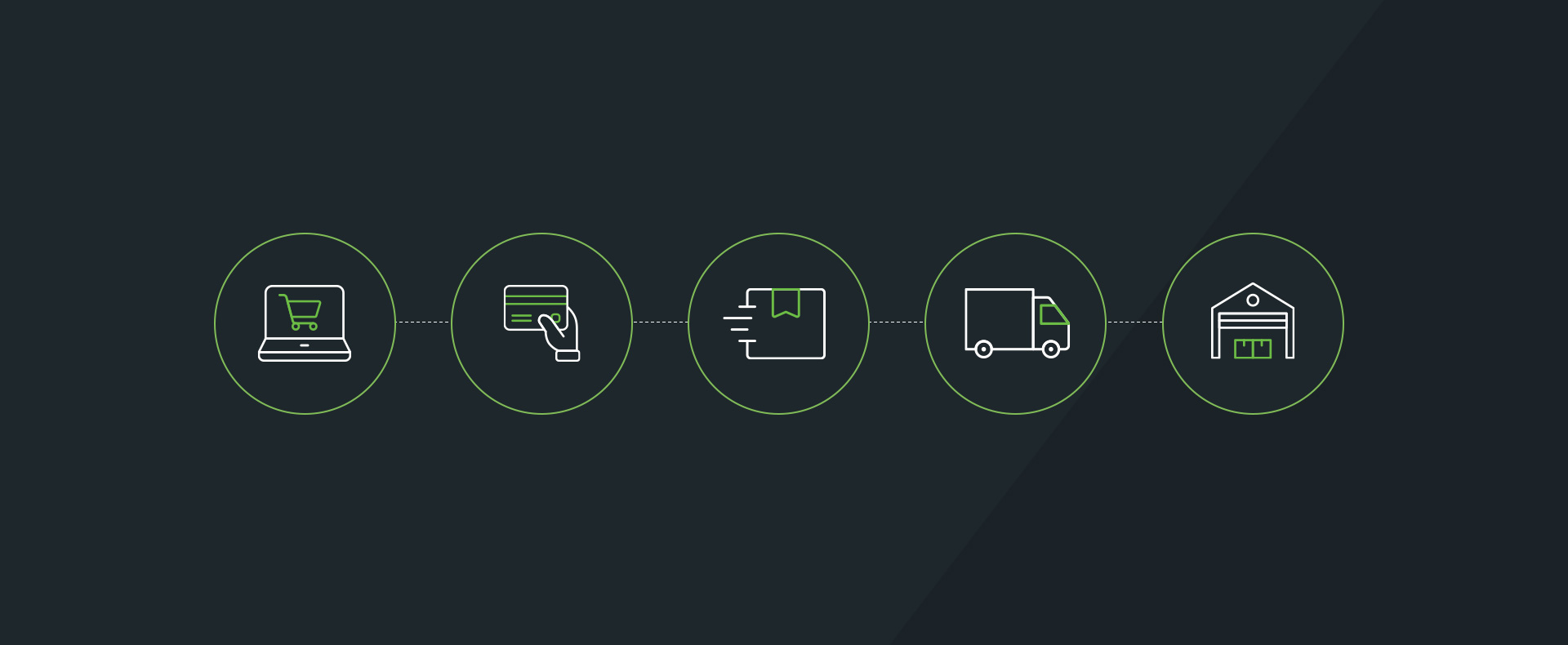Top 5 Places to Sell Online
Selling online opens a whole world of opportunities for business owners and entrepreneurs. Unlike selling in a brick-and-mortar store, ecommerce allows you to sell to people across the globe, and there’s a wide range of marketplaces and platforms to help get your products in front of people who want to buy them.
Over the past five years, ecommerce has skyrocketed. In 2021 alone, ecommerce sales totalled approximately £3.9 trillion globally. Whilst growth is slowing, the market is still strong and provides ample opportunities for global growth. The ecommerce experts at ShipStation have compiled a list of the top five marketplaces to host your ecommerce business to help you decide which will suit your needs.
What is an online marketplace?
An online marketplace is a website that brings together sellers and buyers, where the owner of the website manages all the transactions. It is commonly called an ‘electronic marketplace’ or ‘ecommerce website’.
Many entrepreneurs and businesses of all sizes use online marketplaces to reach the largest target audience possible.
Are all online marketplaces the same?
Whilst on the surface online marketplaces may seem similar, they are, in fact, quite different, depending on which ones you choose to use. When deciding which marketplace you’ll sell your products on, it’s important to consider the benefits of each and how they align with the goals you have for your ecommerce business.
Which are the best marketplaces to sell online?
There are literally hundreds of mainstream online marketplaces for sellers to showcase their goods to consumers. Here is a list of the top five with a few details that make them different from each other:
Amazon
The biggest online marketplace by far (not just in the UK), Amazon tops the list. With over five billion global visits per month, your products are guaranteed to be seen by the most people possible. Before jumping straight into selling on Amazon, consider these pros and cons:
Pros:
- Opportunity for more sales and increased customer base
- Easily expand into international territories
- No or low marketing costs
- No need to hold your own stock
Cons:
- Fierce competition – Amazon has millions of sellers
- Fees – for every product sold, Amazon charges a commission
- No shopping cart integration – managing orders and stock can be challenging
- Complex API requirements – product feeds must be updated daily, and there are specific requirements
Discover how ShipStation can help make your ecommerce journey easier by contacting our team today.
eBay
Launched in 1995, eBay is a tried and trusted online marketplace for everyone from individuals selling things around the house to ecommerce businesses and DropShippers. With over 1.7 billion global visits per month, it’s a safe bet that consumers will see your products. Here are a few things to consider:
Pros:
- Opportunity for more sales and increased customer base
- Sell anything apart from restricted or illegal items, perfect for niche sellers
- Potential to expand internationally
- Some shopping cart integration to help keep track of stock
Cons:
- Rules on returns, refunds, customer service and more – sellers have less control over how they operate
- Fierce competition, especially amongst niche markets
- Fees will impact sellers’ abilities to keep profit margins low and remain competitive against international sellers
- Must have your own inventory of products
- Have to keep track of stock levels to ensure you don’t sell out
OnBuy
Launched in 2014, OnBuy has slowly gained traction with UK sellers over the last eight years. With more than 8.9 million monthly visits, it’s considerably smaller than other ecommerce platforms but offers significant perks as a more agile retailer. Here are a few things to consider:
Pros:
- Low selling fees – approximately 5 – 9%
- Soon expanding to over 100 countries
- No or low marketing costs
- Shopping cart integration
- Close relationship with PayPal
Cons:
- Branding – it may be more difficult to build your own brand
- Fierce competition from large and small sellers alike
Not on the High Street
Launched in 2006, Not on the High Street was once the only online marketplace alternative to eBay and Amazon. The platform was designed to help small businesses sell their products online and with 4.7 million monthly visitors has become a sure-fire success in ecommerce. Here are a few things to consider:
Pros:
- Perfect for creative small businesses, unique and handmade products
- Branded landing page with easily accessible product listing and reviews
- Order management system
- Business development resources i.e., SEO and business planning guides
Cons:
- One-off fee for setup and 25% commission fee on sales
- You can’t just create an account, you must apply through an application form with a clear, detailed description of your business and products
Shopify
Unlike all the other online marketplaces on our list, Shopify is an ecommerce platform with a difference. Instead of simply listing products under the Shopify brand, merchants build their own ecommerce site within Shopify and have their own brand and uniqueness. Additionally, you should consider:
Pros:
- Very user friendly and easy to set up
- Variety of themes available to design your ecommerce website
- Tons of automation and integration with order fulfilment and delivery applications
- Shopify provides SEO and marketing support to help your store rank better, helping to increase your sales
- Build your own unique, recognisable brand
Cons:
- Limited number of free templates to create websites
- Website editor can be clunky and not as easy to use as other website development platforms
- High reliance on third-party apps to make stores function efficiently
- High transaction fees when using anything other than Shopify Payments
- Pricey monthly costs for additional apps, etc.
Whether you want to build your own ecommerce website or operate under a well-known brand like Amazon or eBay, ecommerce retail can offer you the ability to grow beyond the boundaries of a brick-and-mortar store.
To find out more about how ShipStation can help you ship your Shopify orders, read our Shopify Merchant’s Shipping Guide.
Discover how ShipStation can help make your ecommerce journey easier by contacting our team today.






